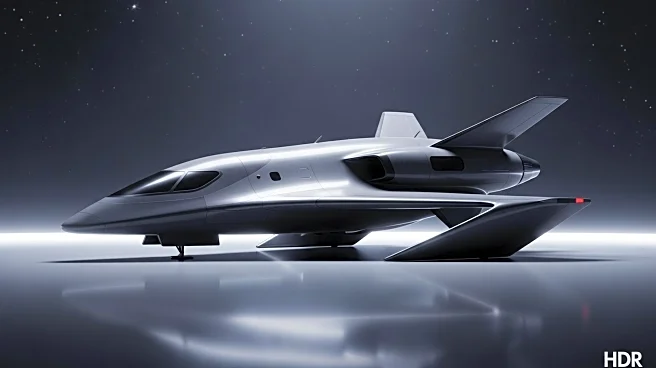What's Happening?
The UK Space Agency has awarded a £150,000 contract to fund the study of a new in-space orbital transfer vehicle (OTV) using autophage propulsion. The spacecraft, designed by French startup Alpha Impulsion and UK mission operator Meridian Space Command, uses a fuel tank made of fuel to change its orbital trajectory. The contract supports a six-month preliminary design review of the economical transfer vehicle (ETV), which aims to provide a cheaper and more efficient way of navigating space. The ETV is expected to have a payload capacity of up to 50 kg and a Delta-v capability of around 4.5 km/s.
Why It's Important?
The development of the autophage spacecraft represents a significant advancement in space propulsion technology. By reducing the dry-mass of the vehicle, the autophage system offers a more efficient mode of propulsion, potentially lowering costs for orbital transfers. This initiative positions the UK as a leader in innovative space technology, contributing to the growth of the space industry. The ETV's ability to reach multiple orbits, including lunar trajectories, highlights its potential for future space missions and exploration.
What's Next?
Alpha Impulsion and Meridian Space Command will continue to study the technical feasibility and economic viability of the ETV. The partnership has already received interest in future missions, including a global STEM mission led by Space Kidz India and a UK-led CubeSat mission to study solar wind. As the design review progresses, the companies may explore collaborations with international partners to enhance the spacecraft's capabilities and attract a diverse customer base.
Beyond the Headlines
The autophage spacecraft reflects broader trends in space technology, where efficient propulsion systems are increasingly in demand. The development of the ETV highlights the potential for cost-effective orbital transfers, contributing to the growth of the space industry. As Alpha Impulsion and Meridian Space Command integrate with other projects, they aim to foster a sustainable space ecosystem, potentially including partnerships with educational and research organizations.









